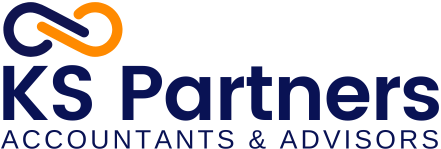Guiding Families in Business…
Establishing a Family Charter
Family businesses vary widely, each uniquely shaped by the families they serve.
However, despite these differences, successful family businesses share core principles of governance, structure, and strategic planning that ensure the preservation and effective transition of wealth across generations.
Without these key elements, family wealth often diminishes significantly by the third generation.
One of the foundational steps in creating a well-structured family business is the development of a comprehensive and customised Family Charter.
What is a Family Charter
A Family Charter, also referred to as a Family Constitution or Family Compass, is a vital governance document for high-net-worth families and their family business.
It provides a structured framework that aligns family values, goals, and decision-making processes, helping to navigate uncertainties while maintaining cohesion and long-term vision.
As a dynamic and evolving document, the Family Charter fosters a strong cultural foundation within the family and family business.
Given the natural complexities that arise as families grow in size, wealth, and operational scope, the charter serves as an essential guide for managing governance, leadership, succession, and strategic planning.
Developing a Family Charter
The process of crafting a Family Charter is just as important as the document itself.
A well-prepared charter is not static; it should be periodically reviewed and updated to reflect changes in family dynamics, economic conditions, and evolving priorities.
Our approach is highly dependent on the unique requirements of each family. Afterall, no one family is the same and therefore, each process is unique to you.
A common approach to designing a highly customised Family Charter includes six key phases:
- Preliminary Assessment
Family members complete an in-depth questionnaire covering various aspects of family capital, with responses analysed collectively to identify shared objectives and concerns. - Individual Consultations
Private meetings with family members provide an opportunity for them to express personal aspirations and viewpoints. This step ensures that all perspectives are considered when developing the charter. - Defining Family Legacy & Purpose
Establishing a clear family legacy statement articulates long-term objectives and values, forming a foundation for meaningful discussions on governance and wealth management. - Comprehensive Review
Analysing the family's structure, existing governance frameworks, asset holdings, and other critical areas such as education, philanthropy, and community involvement ensures that all relevant factors are addressed. - Family Discussions & Consensus Building
Facilitated family meetings encourage open dialogue to align goals and define guiding principles, ultimately shaping the content of the Family Charter. - Drafting & Finalising the Family Charter
A draft document is created based on collective input. While non-binding, the Family Charter serves as a reference framework for legal agreements and ensures ongoing family alignment.
Core Elements of a Family Charter
Like any well-managed enterprise, the success of a multi-generational family business depends on a strategic approach to managing different forms of capital.
A Family Charter typically outlines the following five essential areas:
- Human Capital
The collective strengths, ambitions, and unique attributes of individual family members.
Key question: How can the family leverage the unique strengths and ambitions of each family member to drive the family business forward?
- Intellectual Capital
The knowledge, expertise, and experience that family members contribute to the enterprise.
Key question: How can the family ensure the continuous development and sharing of knowledge and expertise across generations?
- Social Capital
The network of relationships, partnerships, and community engagements that the family maintains.
Key question: How can the family expand and strengthen its network of relationships and partnerships to create long-term opportunities?
- Ethical Capital
The guiding values, philosophies, and principles that define the family’s identity and mission.
Key question: How can the family ensure that its guiding values and principles are maintained and passed down through future generations?
- Financial Capital
The prudent management of assets and financial resources to ensure long-term stability and growth.
Key question: What strategies can the family employ to protect and grow its financial resources while maintaining long-term stability?
Expert Guidance in Developing a Family Charter
Creating a Family Charter is about more than producing a document, it’s about opening meaningful conversations across generations.
With the right guidance, these discussions help families align on values, vision, and long-term purpose, creating a foundation that supports both business and family harmony.
At KS Partners Accountants & Advisors, we bring extensive experience in working with multi-generational family businesses. Our role is to facilitate these conversations in a way that strengthens family bonds, encourages collaboration, and helps the business and the whole family move forward together
We’ve seen families use their Charters to clarify succession, strengthen unity, and even establish shared goals for philanthropy. Each journey is unique, and the Charter evolves alongside the family.
If you and your family are curious about how a Family Charter could support your future, we’d love to start that conversation with you. Together, we can explore your vision, values, and aspirations – and begin shaping a framework that reflects what matters most to you and your family.






